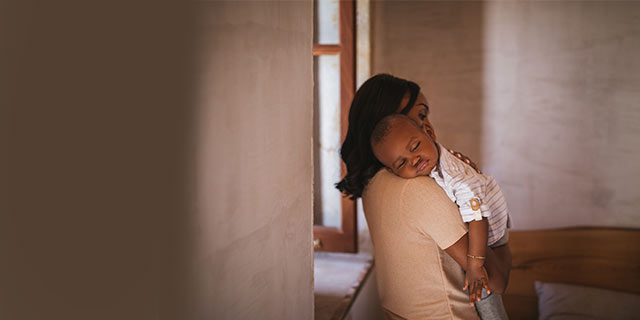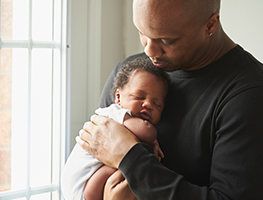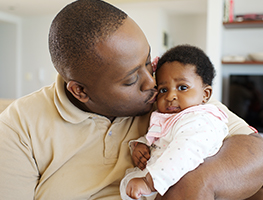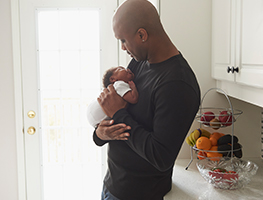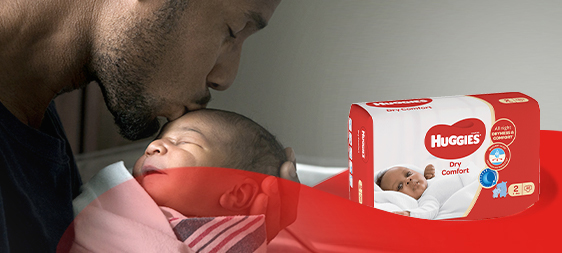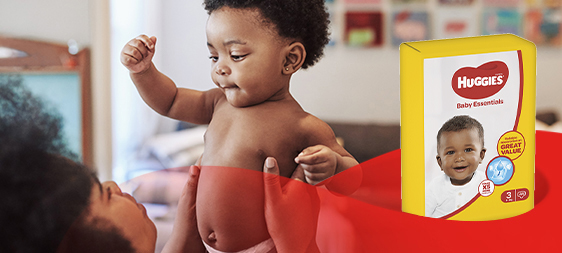Of all the topics parents love to discuss, one of the most popular is that their baby is “sleeping through”. This is generally seen as such a milestone of development that all efforts in working towards it are worthwhile.
However, it is worth asking why it is so important, and if sleeping through the night is all it is cracked up to be.
The real benefits of having a baby that sleeps well are not always about the child, though they are a good place to start. The ultimate goal is, really, more sleep for exhausted parents. It is impossible to imagine just how tired you can be and still function. Many parents feel as if they are just operating on some form of auto pilot, going through the motions of their day without any real connection to it. But, there is hope – read on.
What exactly is sleeping through the night?
This depends on the age of the child and what their usual nocturnal sleeping habits are. Sleeping through the night is really open to individual interpretation.
For parents of newborns, sleeping through can mean not feeding as regularly overnight as during the day. It can also mean the baby is having a longer period of continuous sleep during the night.
It may mean the baby is dropping one feed overnight and sleeping through the usual feed time until later on. Parents are usually advised to demand-feed their baby overnight and encourage them to follow their own hunger signals.
Babies from around 3 months of age will often have a 5 hour or more continuous sleep during the night. Many parents look forward to this time when they may have an opportunity to get more sleep themselves.
For babies from 6 months of age, who have started solid food, this may be the start of them not waking overnight anymore for milk, and stretches of 9-12 hours become possible. From 6 months old, some babies will be happy to have their last feed for the evening at around 6-7 pm, or even later, and then sleep until 5-6 am the following morning.
Sleep cannot be made to happen by a parent, no matter how hard you may try. It’s worth remembering that your baby is a completely separate individual to you and not an extension or smaller version of yourself and your partner.
Get into the rhythm
Our inner clock leads our body’s cycle and flow through a 24 hour day. As adults we do most of our alert, active functions through the day, and at night we wind down to restore and sleep. Unless, of course, you are a baby and aren’t old enough for your biological rhythm to have developed yet. Experts say this usually starts happening from around 6 months onwards though, like everything, this differs from baby to baby.
When should a baby sleep through the night?
There is no definite time or stage of development for this to happen. It really depends, again, on the individual baby and their parent’s expectations. Some babies are naturally more passive and like sleeping, and others are more resistant. Temperament and personality play a big role in how babies function, including their sleeping behaviours.
Most parents see a longer night-time sleeping pattern developing from around 3 months onwards. By then, there is more structure around a baby’s daytime routines, with shorter sleeps, more predictable feeding times, and a longer, continuous sleep overnight.
Remember:
Waking up during the night is normal for all of us, especially for babies who have much shorter sleep cycles than older children and adults.
A baby’s sleep is a series of complex cycles where they progress every 50 minutes through stages of deep sleep and light sleep.
Night waking is necessary for a young baby’s general health and there is nothing parents can do to stop it from happening. Try to keep your expectations realistic and work with what you can. Your responses to their waking are under your control.
How you settle your baby to sleep through the day and evening will impact on how they go back to sleep overnight. Try to be consistent with your settling techniques.
A regular pre-settling routine is always useful. Feeding, a warm bath, cuddles and little rituals of reassurance before placing your baby into their cot awake, will help them feel secure.
Why do some babies frequently wake overnight?
Because they are young enough to still need frequent feeding and reminders that their parents are close to them. Night waking is normal for young babies, who need to wake in 3-4 hourly cycles over 24 hours.
Because of physical discomfort. Simple solutions, such as making sure your baby is warm enough, fed enough, tired enough, and comfortable enough to sleep, are simple enough to fix. Look for the basics first.
Due to habit. Babies that are in a pattern of dependence and need their parents to help them go to sleep will cry out for them overnight. Sleep behaviour through the day impacts on night-time sleep. Young babies cannot adapt their behaviour to suit the time of day.
Babies, who have reached a new developmental stage, will often practice these new skills in their sleep. Rolling, crawling, standing and chatting don’t switch off during the night.
When there has been a change in the regular family routine, such as a move, the start of day-care, or graduating from a bassinette to a cot. It does not take long for a baby to develop a habit of night waking. Just because they have slept through before, does not mean that they will continue to do so.
A baby, who is sick or incubating an illness, will often sleep differently to how they were sleeping before. Be flexible with your settling management when your baby is unwell. They will need lots of extra cuddles, attention and feeds to support their immune systems, to recover and to feel less miserable.
Some studies have shown that babies, whose mothers have postnatal depression or mental health illnesses, are more prone to night waking. Professional and practical support with baby care is important for every new parent.
What you can do
Avoid seeing your baby’s waking as your fault. Babies change all the time, and there is often no definite reason why babies do what they do. Be flexible, do your best, and ask for help from some trusted sources of support if you need to.
Get as much rest and sleep through the day as you can. Expect to be tired and be woken overnight for at least a few months. Don’t neglect the basics of looking after your own health.
Rocking, patting, soothing, wrapping, cuddling and walking, all help young babies to calm and settle. If your baby is very unsettled, try putting them in a sling, pushing them in a pram, or giving a deep warm bath and then a massage.
Extra feeds, offering a dummy, or handing them to someone else to nurse for a while can all help. Small babies like to be wrapped or swaddled until they get to the stage when they start to roll. This happens from around 3-4 months of age.
Try not to always interpret your baby’s cries overnight as due to hunger. Aim to feed them as much as they need to during the day and evenings, and try not to wake them overnight for feeds unless you’ve been advised to.
Try not to let your baby go for more than 4 hours or so between feeds through the day and evening. Otherwise, they may try to make up for missed feeds overnight.
For more strategies on how to settle your baby, see Baby settling.

